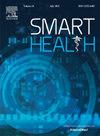Quantum contrastive learning for human activity recognition
Q2 Health Professions
引用次数: 0
Abstract
Deep learning techniques have been widely used for human activity recognition (HAR) applications. The major challenge lies in obtaining high-quality, large-scale labeled sensor datasets. However, unlike datasets such as images or text, HAR sensor datasets are non-intuitive and uninterpretable, making manual labeling extremely difficult. Self-supervised learning has emerged to address this problem, which can learn from large-scale unlabeled datasets that are easier to collect. Nevertheless, self-supervised learning has the increased computational cost and the demand for larger deep neural networks. Recently, quantum machine learning has attracted widespread attention due to its powerful computational capability and feature extraction ability. In this paper, we aim to address this classical hardware bottleneck using quantum machine learning techniques. We propose QCLHAR, a quantum contrastive learning framework for HAR, which combines quantum machine learning techniques with contrastive learning to learn better latent representations. We evaluate the feasibility of the proposed framework on six publicly available datasets for HAR. The experimental results demonstrate the effectiveness of the framework for HAR, which can surpass or match the precision of classical contrastive learning with fewer parameters. This validates the effectiveness of our approach and demonstrates the significant potential of quantum technology in addressing the challenges associated with the scarcity of labeled sensory data.
人类活动识别的量子对比学习
深度学习技术在人类活动识别(HAR)中得到了广泛的应用。主要的挑战在于获得高质量、大规模的标记传感器数据集。然而,与图像或文本等数据集不同,HAR传感器数据集是非直观和不可解释的,这使得手动标记非常困难。自监督学习的出现就是为了解决这个问题,它可以从更容易收集的大规模未标记数据集中学习。然而,自监督学习增加了计算成本,并且需要更大的深度神经网络。近年来,量子机器学习以其强大的计算能力和特征提取能力引起了广泛的关注。在本文中,我们的目标是使用量子机器学习技术来解决这一经典的硬件瓶颈。我们提出了QCLHAR,一个量子对比学习框架,它结合了量子机器学习技术和对比学习来学习更好的潜在表征。我们在六个公开可用的HAR数据集上评估了拟议框架的可行性。实验结果证明了该框架在HAR学习中的有效性,可以在更少的参数下超越或匹配经典对比学习的精度。这验证了我们方法的有效性,并展示了量子技术在解决与标记感官数据稀缺相关的挑战方面的巨大潜力。
本文章由计算机程序翻译,如有差异,请以英文原文为准。
求助全文
约1分钟内获得全文
求助全文

 求助内容:
求助内容: 应助结果提醒方式:
应助结果提醒方式:


